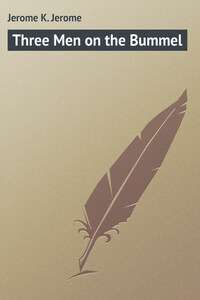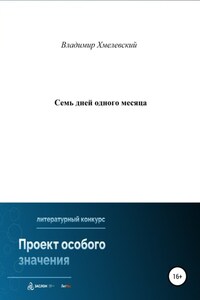To
The very dear and well-beloved
Friend
Of my prosperous and evil days—
To the friend
Who, though in the early stages of our acquaintanceship
Did ofttimes disagree with me, has since
Become to be my very warmest comrade—
To the friend
Who, however often i may put him out, never (now)
Upsets me in revenge—
To the friend
Who, treated with marked coolness by all the female
Members of my household, and regarded with suspicion
By my very dog, nevertheless seems day by
Day to be more drawn by me, and in return
To more and more impregnate me with
The odor of his friendship—
To the friend
Who never tells me of my faults, never wants to
Borrow money, and never talks about himself—
To the companion
Of my idle hours, the soother of my sorrows,
The confidant of my joys and hopes—
My oldest and strongest
Pipe,
This little volume
Is
Gratefully and affectionately
Dedicated.
Now, this is a subject on which I flatter myself I really am au fait. The gentleman who, when I was young, bathed me at wisdom's font for nine guineas a term– no extras– used to say he never knew a boy who could do less work in more time; and I remember my poor grandmother once incidentally observing, in the course of an instruction upon the use of the Prayer-book, that it was highly improbable that I should ever do much that I ought not to do, but that she felt convinced beyond a doubt that I should leave undone pretty well everything that I ought to do.
I am afraid I have somewhat belied half the dear old lady's prophecy. Heaven help me! I have done a good many things that I ought not to have done, in spite of my laziness. But I have fully confirmed the accuracy of her judgment so far as neglecting much that I ought not to have neglected is concerned. Idling always has been my strong point. I take no credit to myself in the matter– it is a gift. Few possess it. There are plenty of lazy people and plenty of slow-coaches, but a genuine idler is a rarity. He is not a man who slouches about with his hands in his pockets. On the contrary, his most startling characteristic is that he is always intensely busy.
It is impossible to enjoy idling thoroughly unless one has plenty of work to do. There is no fun in doing nothing when you have nothing to do. Wasting time is merely an occupation then, and a most exhausting one. Idleness, like kisses, to be sweet must be stolen.
Many years ago, when I was a young man, I was taken very ill– I never could see myself that much was the matter with me, except that I had a beastly cold. But I suppose it was something very serious, for the doctor said that I ought to have come to him a month before, and that if it (whatever it was) had gone on for another week he would not have answered for the consequences. It is an extraordinary thing, but I never knew a doctor called into any case yet but what it transpired that another day's delay would have rendered cure hopeless. Our medical guide, philosopher, and friend is like the hero in a melodrama– he always comes upon the scene just, and only just, in the nick of time. It is Providence, that is what it is.
Well, as I was saying, I was very ill and was ordered to Buxton for a month, with strict injunctions to do nothing whatever all the while that I was there. “Rest is what you require,” said the doctor, “perfect rest. ”
It seemed a delightful prospect. “This man evidently understands my complaint,” said I, and I pictured to myself a glorious time– a four weeks' dolce far niente with a dash of illness in it. Not too much illness, but just illness enough– just sufficient to give it the flavor of suffering and make it poetical. I should get up late, sip chocolate, and have my breakfast in slippers and a dressing-gown. I should lie out in the garden in a hammock and read sentimental novels with a melancholy ending, until the books should fall from my listless hand, and I should recline there, dreamily gazing into the deep blue of the firmament, watching the fleecy clouds floating like white-sailed ships across its depths, and listening to the joyous song of the birds and the low rustling of the trees. Or, on becoming too weak to go out of doors, I should sit propped up with pillows at the open window of the ground-floor front, and look wasted and interesting, so that all the pretty girls would sigh as they passed by.
And twice a day I should go down in a Bath chair to the Colonnade to drink the waters. Oh, those waters! I knew nothing about them then, and was rather taken with the idea. “Drinking the waters” sounded fashionable and Queen Anneified, and I thought I should like them. But, ugh! after the first three or four mornings! Sam Weller's description of them as “having a taste of warm flat-irons” conveys only a faint idea of their hideous nauseousness. If anything could make a sick man get well quickly, it would be the knowledge that he must drink a glassful of them every day until he was recovered. I drank them neat for six consecutive days, and they nearly killed me; but after then I adopted the plan of taking a stiff glass of brandy-and-water immediately on the top of them, and found much relief thereby. I have been informed since, by various eminent medical gentlemen, that the alcohol must have entirely counteracted the effects of the chalybeate properties contained in the water. I am glad I was lucky enough to hit upon the right thing.
But “drinking the waters” was only a small portion of the torture I experienced during that memorable month– a month which was, without exception, the most miserable I have ever spent. During the best part of it I religiously followed the doctor's mandate and did nothing whatever, except moon about the house and garden and go out for two hours a day in a Bath chair. That did break the monotony to a certain extent. There is more excitement about Bath-chairing– especially if you are not used to the exhilarating exercise– than might appear to the casual observer. A sense of danger, such as a mere outsider might not understand, is ever present to the mind of the occupant. He feels convinced every minute that the whole concern is going over, a conviction which becomes especially lively whenever a ditch or a stretch of newly macadamized road comes in sight. Every vehicle that passes he expects is going to run into him; and he never finds himself ascending or descending a hill without immediately beginning to speculate upon his chances, supposing– as seems extremely probable– that the weak-kneed controller of his destiny should let go.










